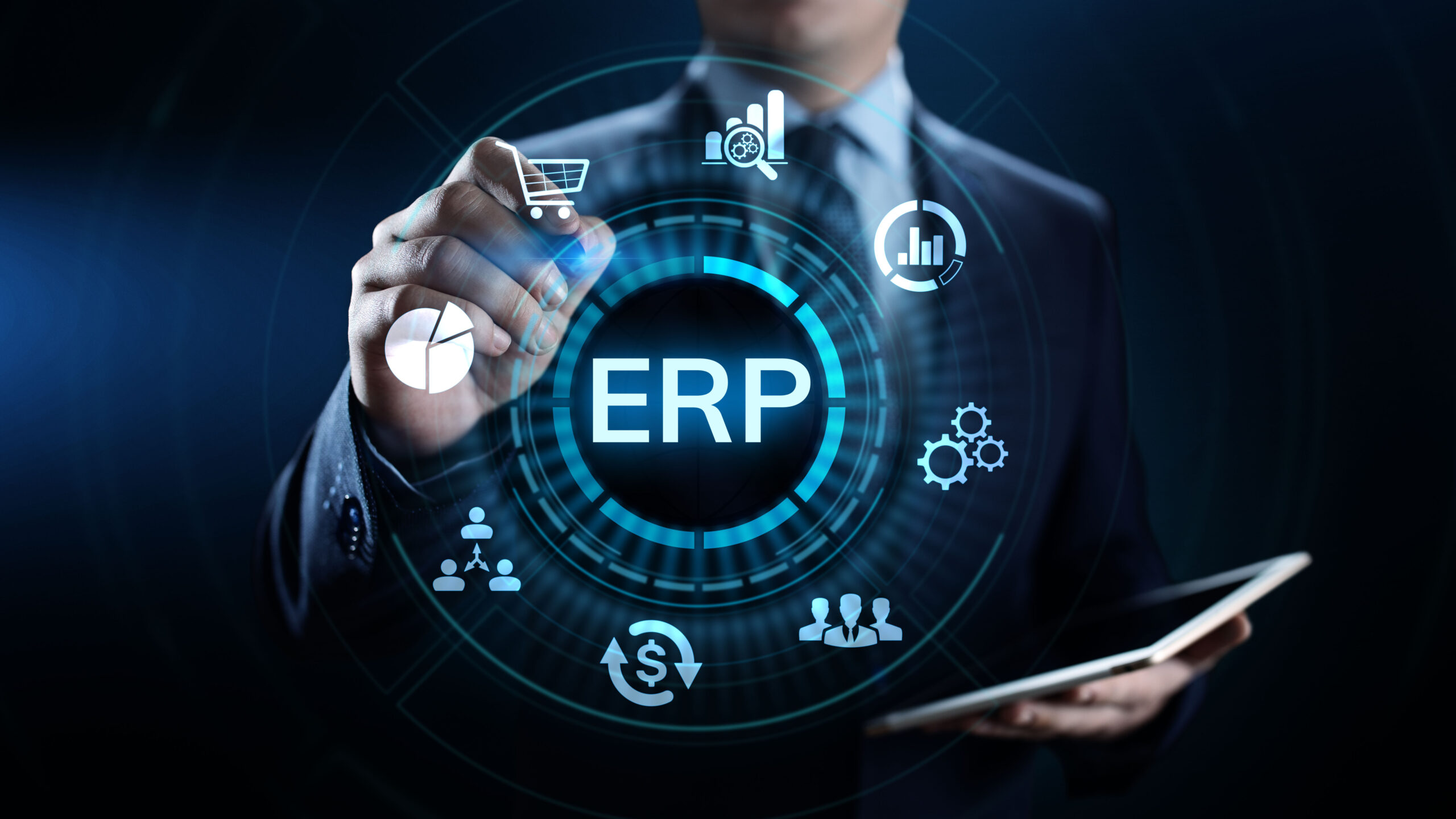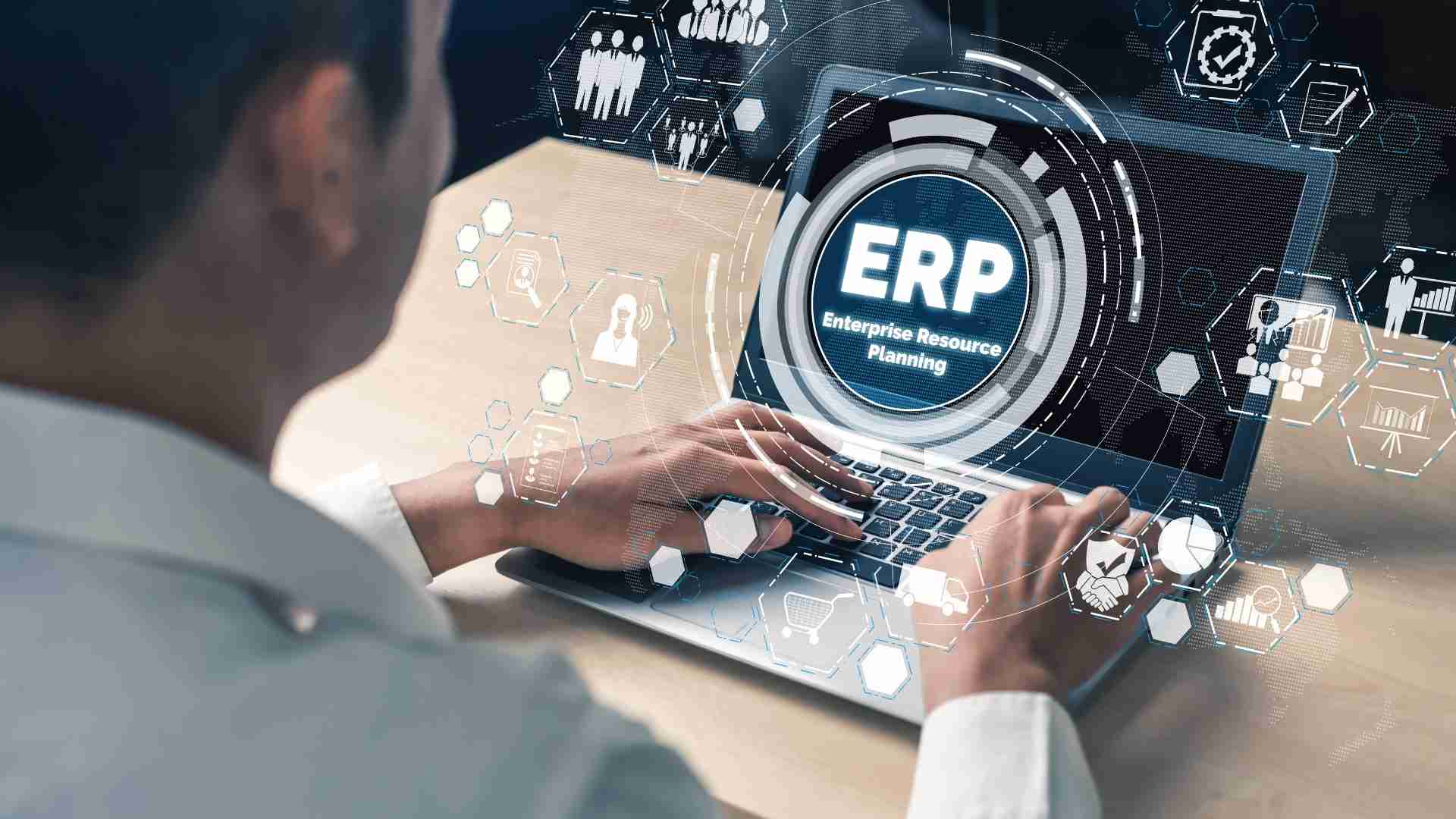ERP is a vital role in driving and expanding business development working to provide a comprehensive and integrated platform for managing the different aspects of an enterprise's operations, This has made control of business activities increasingly complex. and therefore companies need effective solutions to run their business and maintain their competitiveness in the market, This is where ERP comes in. What is the concept of ERP and its role in business development?, The answer we'll get to know in the rest of the article.

What is ERP?
ERP is a sophisticated software solution that integrates critical business functions and processes into a centralized and standardized system The ERP software consists of applications and tools that help all areas of your business communicate with each other more effectively, ERP also integrates all aspects of an enterprise into a single comprehensive information system and through an effective ERP program, employers and leaders can automate and streamline their business tasks and help employees become more productive and successful in their roles, and get a real-time view of their internal business.
ERP system features
ERP is a comprehensive software solution that integrates, centralizes and develops core business functions and processes, and offers the following features:
1. Automate tasks and improve processes
One of the key advantages of ERP is that it allows companies to automate normal and recurring tasks The reconciliation of the account and the reconciliation of the incurred transactions allows companies to significantly increase efficiency and accelerate the financial closure process, The best ERP software eliminates repeated processes and reduces the need to manually input information s productivity, but eliminates the likelihood of inaccurate data that could lead to costly business errors.
2. Accurate forecasts and risk reduction
Strong predictions help effectively reduce business costs as well as help you become a more proactive unit in general and, in this regard, the ERP system provides users with, Especially managers, the tools they need to create more accurate forecasts, this helps software users and companies as a whole to think ahead and plan properly for what they need from inventory and sales to financial data and customer service.
ERP also creates an additional layer of corporate control where it compiles relevant data in reports and dashboards to run automated risk assessments and predict and resolve future problems. Moreover, most ERP systems contain (ERP) on built-in tools to ensure your business remains compliant with compliance regulations and help you avoid fines or penalties you can incur.
3. Modification of supply chain management
ERP supports supply chain management in multiple ways and this increases deliveries on time, in shorter time and many other advantages that enhance the overall operation of your organization and the success of your business, ERP's accounting program simplifies the supply chain, facilitating manufacturing innovations which can help you reduce costs and develop exciting new products that give your business the competitive advantage it needs to stay ahead.
Modern ERP systems also benefit from AI for real-time data analysis. The software can suggest transportation methods and forecast demand fluctuations. Real-time metrics also improve your ability to respond to potential market changes or disruptions.
4. Informed decision-making
ERP provides a unified view of the organization's operations, integrating data from different systems and departments, such as finance, human resources and supply chain, and eliminating data silos, streamlining workflows, enabling real-time access to vital data, thereby enhancing collaboration and efficiency at the enterprise level.
ERP also eliminates, and by having a single centralized repository accessible to all departments, eliminates the need for heavy manual processes such as frequent data entry across multiple systems, thereby improving the accuracy of your data as well, as we have indicated.
5. Reduce business costs
Companies are reducing costs using ERP using human resources, asset management and financial planning tools. By fully visioning everyday operations, your company can quickly identify and respond to factors affecting your budget, starting with the elimination of multiple suppliers' monthly fees, which in turn can lead to lower overall software costs.
By adopting ERP, your IT team also has fewer systems that can be managed and updated. The system also allows for improved staff productivity and automation of staff manual tasks, leading to further work being completed without additional team members being appointed.
7. Data security and reliability
Your company's data security is the most important factor, and with the use of online services, a backup of data can be made on the cloud, with little risk of losing it, with high security standards offered by many ERP systems.
Companies can also rely fully on their data as they stream through different divisions to an accurate, centralized and modern source, employees will then be able through the best corporate management software to access the data they need without worrying about errors or having to go through several different teams to find what they are looking for.
8. Enhancing communication
The integrated ERP system helps improve communication between different departments by facilitating communication with each other. This will allow employees to collaborate more effectively and can also help reduce the amount of miscommunication occurring within your business. In addition, CRM improves customer relationships where their information is easily accessible.
Conclusion:
Many benefits have been made to use ERP software in companies. Perhaps the most important of these benefits as we have indicated is that it allows companies to have a single database where they can store all their data. This makes it easier for them to access this information when needed, helping them make better business decisions and improve operational efficiency.
Another Topics :
References:
1. << Basic benefits of choosing an effective ERP system >>, readwrite
2. << Using ERP systems in business >>, enterprise

Add New Comment